Mountbatten’s Samurai: Imperial Japanese Army and Navy Forces under British Control in Southeast Asia, 1945-1948
£28.50
‘This is an important book that uncovers some remarkable secrets… Connor is an outstanding historian of wartime Asia and he tells his story well.’ Richard J. Aldrich, author of GCHQ: The Uncensored Story of Britain’s Most Secret Intelligence Agency.
Six weeks after Japan’s surrender in August 1945, British and Japanese troops were fighting side-by-side against nationalist revolutionaries in ‘peacekeeping’ operations in Indonesia and Vietnam. In Java, Dutch civilians cheered as their former jailors, members of the infamous kenpeitai rescued them from what had seemed certain death at the hands of armed mobs. In November 1945 a Japanese Army officer was recommended for a British Distinguished Service Order (DSO) for services rendered to South-East Asia Command after his troops helped restore order and save thousands of civilian lives.
‘The Japanese may be so deployed and…drastic action including shooting should be taken against any who refuse’. Admiral Mountbatten (to War Office), Kandy, 24 August 1945.
‘The men concerned are surely Japanese prisoners-of-war and if the War Office, in order to evade compliance with the Geneva Convention, have decided to call them something else, this should not…avoid responsibility for decent treatment.’ Foreign Office, London, 18 March 1946.
In August 1945 Britain accepted responsibility for the care and repatriation of over 750,000 Japanese military personnel in Southeast Asia. Short of manpower and resources in Burma and Malaya, and with its French and Dutch Allies’ colonial territories of Indo-China (FIC) and the Netherlands East Indies (NEI) embroiled in revolution, Britain found it expedient to press the Japanese-who were denied Prisoner of War (PoW) status-into military operations in support of European colonial interests and then ignore repatriation commitments by deliberately retaining over 100,000 as mass, unpaid labour.
‘[A] stain which would blemish the honor of the United Kingdom…’ General Douglas MacArthur, Tokyo, March 1947.
Mountbatten’s Samurai reveals a Britain struggling to match Great Power status and obligation without a Great Power budget or capability in Southeast Asia in the face of strong criticism from the US State Department in Washington, General Douglas MacArthur’s SCAP GHQ Occupation headquarters in Tokyo, the International Committee for the Red Cross (ICRC), the Japanese Government and even the Vatican.
‘A perceptive and shrewd analysis of the prolonged and secret diplomatic stand-off between London and Washington over Britain’s post-war use of tens of thousands of surrendered Japanese in combat operations in support of European colonial interests in contravention of the Geneva Convention, and later as deliberately retained, unpaid labour in breach of the Potsdam Agreement’. (Publisher’s Catalogue)
Read more
Additional information
| Publisher | Illustrated edition (10 Nov. 2015), Seventh Citadel |
|---|---|
| Language | English |
| Hardcover | 320 pages |
| ISBN-10 | 0957630557 |
| ISBN-13 | 978-0957630550 |
| Dimensions | 15.6 x 2.24 x 23.39 cm |

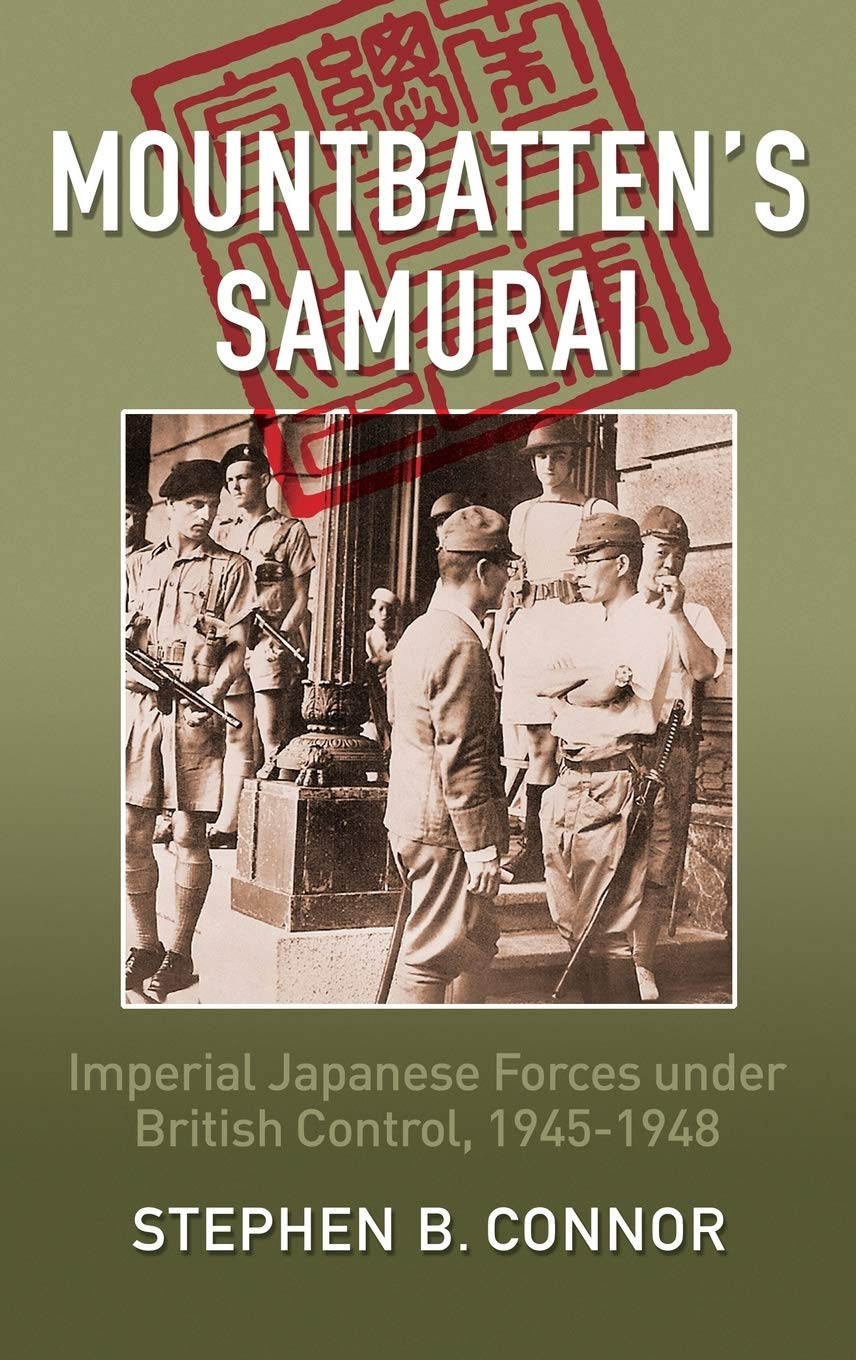
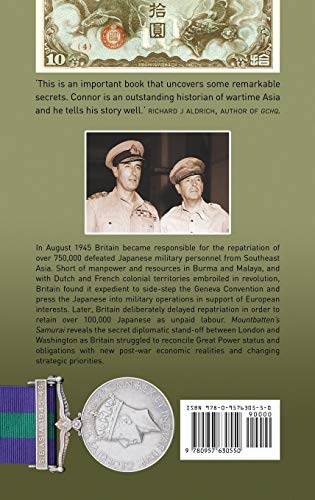
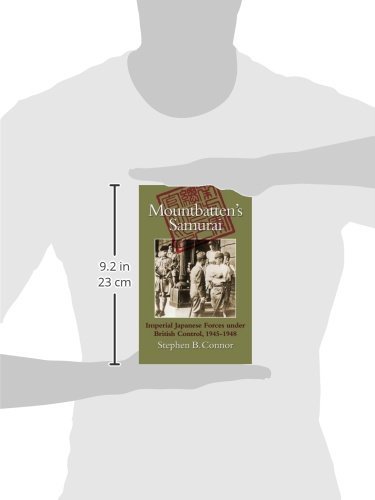


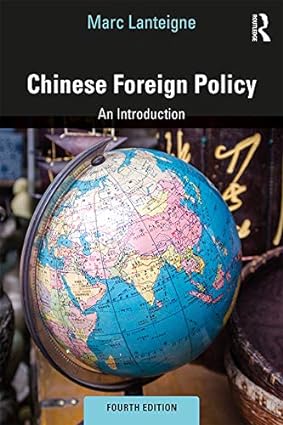




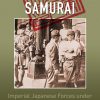
by Matthew Tetley
This book is full of surprises. I thought I ‘knew’ about the war in the Far East but I was astounded at what happened after the atomic bombings and the use of the ‘surrendered’ Japanese troops in Southeast Asia. This is a complex subject tackled sensitively and even handedly. The research is simply first class, the revelations are astonishing and some of the photographs are amazing. Connor’s stylish and engaging writing enhances the whole package. A scholastic tour de force!
by John Fisher
This is a proper book. Thoroughly researched and well written. It covers a little-known area of post-war events, and has great value. The detail is excellent, and the anecdotes and photographs are fascinating. Highly recommended.
by Michael O’Driscoll
Fills in a gap in UK history and dispels many of the myths.Lots of questions raised about the morality of the British elite then.Plus sa change,plus sa meme chose.
by sidesalad
I was so looking forward to reading this as I was hoping to learn more about Britain’s involvement in French indochina and the immediate aftermath of the war in the far East.
What I actually got to read was a ramble account which made no real insight into the subject the author just seems to repeat the same facts again and again, he refers to chapter three in chapter one! Provided no accounts of military actions but refers to them a lot so you are constantly back tracking through pages to see if you have missed accounts which the author uses as examples to explain actions of the British and Japanese.
All in all a very poorly written and hard to follow book on what is a very interesting subject
by Mr. M. P. Powell
First this is not a particularly easy read, but makes clear that the Brits were left holding a can of worms, with vast territorial swathes held be Japanese troops who for cultural reasons could not be POWs, yet were nominally supposedly ruled by colonial powers themselves in turmoil following their release from Hitlers war time rule, particularly teh Dutch East Indies. It did not help that the US had a different aim and were deeply suspicious of the UK’S suspected intention to revet the post war worlds to its ’30’s position – yet such things as repatriation of Japanese troops by an almost bankrupt nation whose mercantile fleet had been wrecked by U Boats and mines in convoy work made an almost impossible equation to square.
by Jake8492
An excellent volume telling a story that very few, apart from military historians, will be aware of. Like most British people I had no idea that the British Army was involved in the Dutch East Indies or French Indo China following the end of the war against Japan in 1945. It is, however, somewhat repetitive throughout. However, that does not detract from this book being a useful addition to the library of the military history researcher.
by P. J. Martin
Mountbatten’s Samurai: Imperial Japanese Army and Navy Forces under British Control in Southeast Asia, 1945-1948 A most interesting book. The sudden end of the war meant that British troops had to occupy her former colonies and those of Holland and France. We were under resourced, broke with enormous responsibilities. We also had to cope with the rise of nationalism. We depended on Japanese troops who still operated under their military law, and who were also potential nationalist victims. Some of those served us so well that we would have given them military decorations though some covertly assisted the nationalists. The japs were called, at the request of their govt, Japanese surrendered persons, ,so as to avoid the stigma and consequence of being PoWs. This gave the British the opportunity to derogate from the rights of PoWs under international law. We kept Japanese as essential labour but the Americans wanted them to be repatriated and were anxious about the treatment of Japanese prisoners held by the Soviets; and also wanted to start rebuilding Japan. The story was right to the bone.
by M. Mason
A rather dry telling of a little known post war story of how Japanese surrendered personnel where employed in policing and rebuilding by the British in Asia. Rather too many abbreviations for my liking, some nonstandard for example PW instead of Pow for Prisoner of War.
Overall rather academic and too interested in the diplomatic tensions between the British and the US in the shape of Douglas MacArthur, rather than the human side of the story of the Japanese surrendered forces. Rather boring unless you’re the kind of person who likes reading legal documents, or Terms and Conditions!